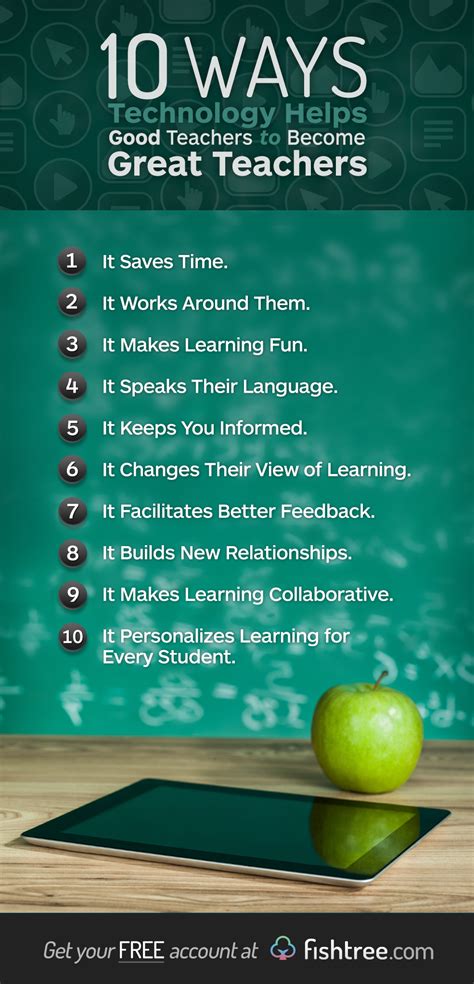In today's digital age, having a strong understanding of personal technology is crucial for both personal and professional success. With new devices, software, and tools emerging every day, it can be overwhelming to keep up with the latest trends. However, by developing your skills and knowledge, you can become a personal tech pro and stay ahead of the curve. In this article, we'll explore 10 ways to become a personal tech pro, from learning the basics to mastering advanced techniques.
1. Start with the Basics

Before diving into advanced topics, it's essential to have a solid grasp of the basics. Start by learning about computer hardware, software, and networking fundamentals. Understand how devices communicate with each other, and learn about basic troubleshooting techniques. Online resources like Coursera, Udemy, and edX offer a wide range of courses on computer basics.
Key Concepts to Learn:
- Computer hardware components (CPU, RAM, storage)
- Operating systems (Windows, macOS, Linux)
- Networking fundamentals (Wi-Fi, Ethernet, routers)
- Basic troubleshooting techniques
2. Develop Your Digital Literacy

Digital literacy is the ability to effectively use digital technologies to access, evaluate, and create information. Develop your digital literacy skills by learning about online safety, password management, and digital communication tools. Practice using cloud storage services, email clients, and social media platforms.
Key Concepts to Learn:
- Online safety and security best practices
- Password management techniques
- Cloud storage services (Google Drive, Dropbox, OneDrive)
- Digital communication tools (email, social media, instant messaging)
3. Master Productivity Tools

Productivity tools can help you manage your time, tasks, and projects more efficiently. Learn about popular productivity tools like Todoist, Trello, and RescueTime. Practice using these tools to streamline your workflow and boost your productivity.
Key Concepts to Learn:
- Task management tools (Todoist, Trello, Asana)
- Time management techniques (Pomodoro, time blocking)
- Focus-enhancing tools (RescueTime, Freedom)
- Project management tools (Basecamp, Jira)
4. Learn Programming Fundamentals

Learning to code can be a valuable skill for any tech enthusiast. Start by learning the basics of programming languages like Python, JavaScript, or HTML/CSS. Online resources like Codecademy, FreeCodeCamp, and Coursera offer interactive coding lessons.
Key Concepts to Learn:
- Programming language basics (Python, JavaScript, HTML/CSS)
- Data structures (arrays, lists, dictionaries)
- Control structures (loops, conditionals)
- Object-Oriented Programming (OOP) concepts
5. Explore Cloud Computing

Cloud computing has revolutionized the way we store and process data. Learn about cloud computing models (IaaS, PaaS, SaaS), cloud providers (AWS, Azure, Google Cloud), and cloud security best practices.
Key Concepts to Learn:
- Cloud computing models (IaaS, PaaS, SaaS)
- Cloud providers (AWS, Azure, Google Cloud)
- Cloud security best practices (data encryption, access control)
- Cloud storage options (Google Drive, Dropbox, OneDrive)
6. Develop Your Data Analysis Skills

Data analysis is a crucial skill in today's data-driven world. Learn about data analysis techniques, data visualization tools, and statistical concepts. Practice using tools like Excel, Tableau, or Power BI to analyze and visualize data.
Key Concepts to Learn:
- Data analysis techniques (data cleaning, data visualization)
- Data visualization tools (Tableau, Power BI, D3.js)
- Statistical concepts (mean, median, standard deviation)
- Data mining techniques (clustering, decision trees)
7. Learn About Cybersecurity

Cybersecurity is a critical concern in today's digital world. Learn about cybersecurity best practices, threat analysis, and risk management. Practice using tools like antivirus software, firewalls, and VPNs to protect your devices and data.
Key Concepts to Learn:
- Cybersecurity best practices (password management, software updates)
- Threat analysis (malware, phishing, ransomware)
- Risk management techniques (identifying vulnerabilities, implementing controls)
- Incident response planning
8. Explore Artificial Intelligence and Machine Learning

Artificial intelligence and machine learning are transforming the tech industry. Learn about AI and ML concepts, natural language processing, and computer vision. Practice using tools like TensorFlow, PyTorch, or Scikit-learn to build AI and ML models.
Key Concepts to Learn:
- AI and ML concepts (supervised learning, unsupervised learning)
- Natural language processing (NLP) techniques
- Computer vision concepts (image recognition, object detection)
- Deep learning techniques (neural networks, convolutional neural networks)
9. Develop Your Web Development Skills

Web development is a crucial skill for any tech enthusiast. Learn about web development frameworks (React, Angular, Vue.js), front-end development tools, and back-end development techniques.
Key Concepts to Learn:
- Web development frameworks (React, Angular, Vue.js)
- Front-end development tools (HTML/CSS, JavaScript)
- Back-end development techniques (Node.js, Ruby on Rails, Django)
- Database management systems (MySQL, MongoDB, PostgreSQL)
10. Stay Up-to-Date with the Latest Tech Trends

The tech industry is constantly evolving, and it's essential to stay up-to-date with the latest trends. Follow tech blogs, attend conferences, and participate in online communities to stay informed about the latest developments.
Key Concepts to Learn:
- Emerging tech trends (blockchain, IoT, 5G)
- Industry reports and research studies
- Tech news and updates (product releases, mergers and acquisitions)
- Future tech predictions and forecasts
Gallery of Personal Tech Pro Resources





FAQ Section
What are the most important skills for a personal tech pro to have?
+The most important skills for a personal tech pro to have include proficiency in computer hardware, software, and networking fundamentals, as well as knowledge of cloud computing, cybersecurity, and data analysis.
How can I stay up-to-date with the latest tech trends?
+You can stay up-to-date with the latest tech trends by following tech blogs, attending conferences, and participating in online communities.
What are some recommended resources for learning personal tech skills?
+Some recommended resources for learning personal tech skills include online courses on Coursera, Udemy, and edX, as well as tech books, podcasts, and YouTube channels.
By following these 10 ways to become a personal tech pro, you'll be well on your way to developing the skills and knowledge needed to succeed in today's digital world. Remember to stay curious, keep learning, and always stay up-to-date with the latest tech trends.
